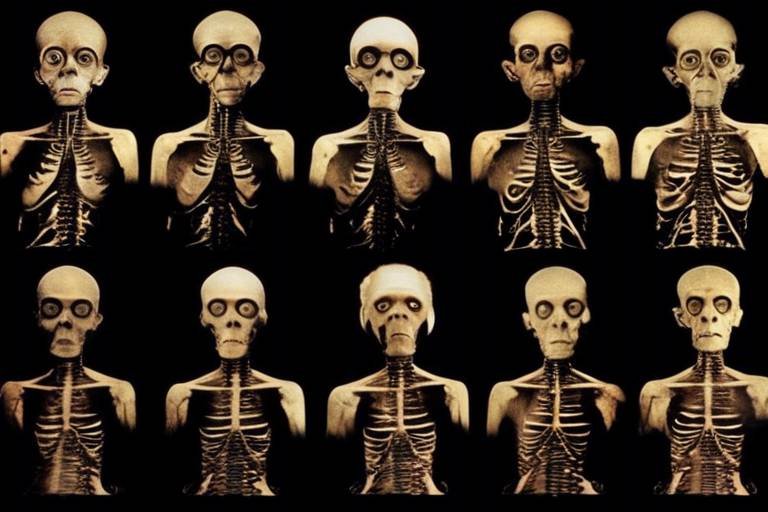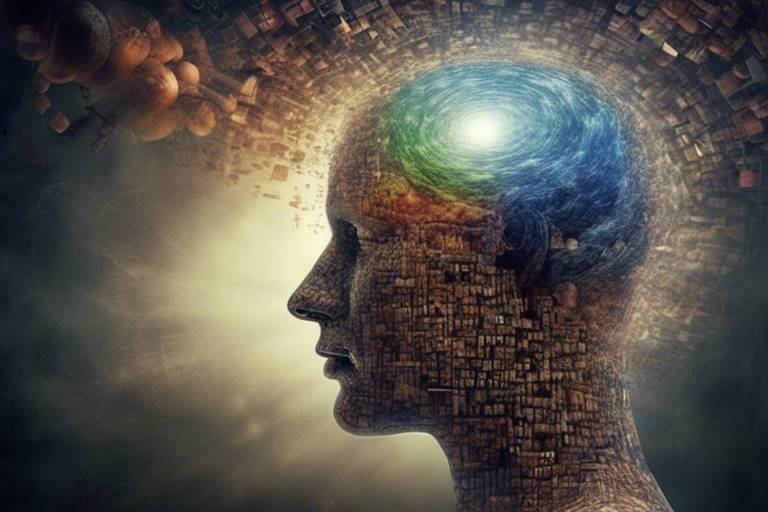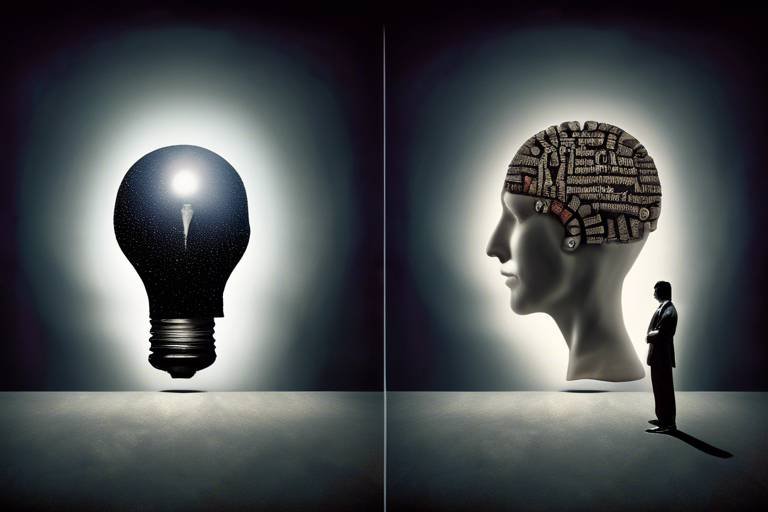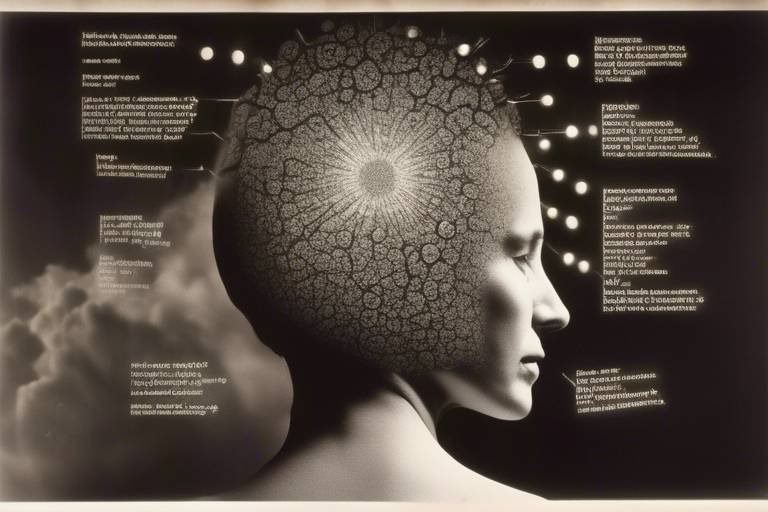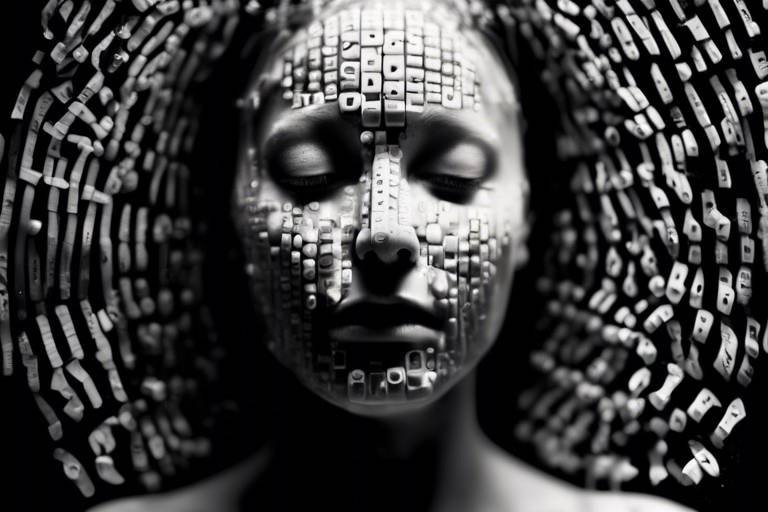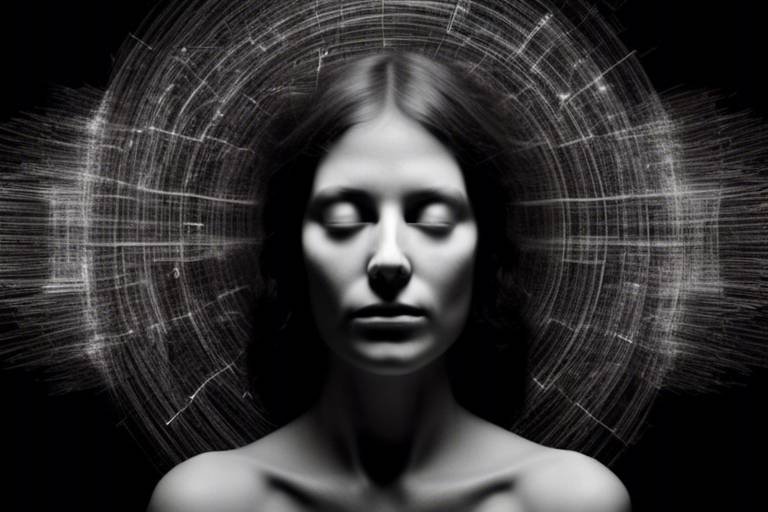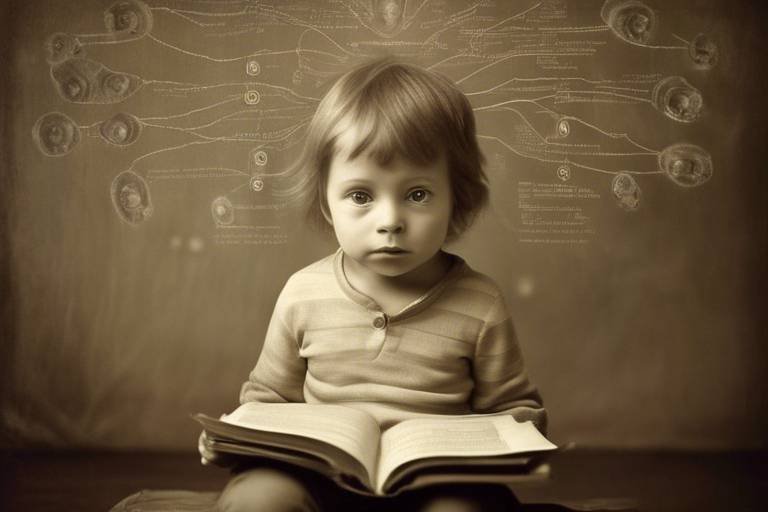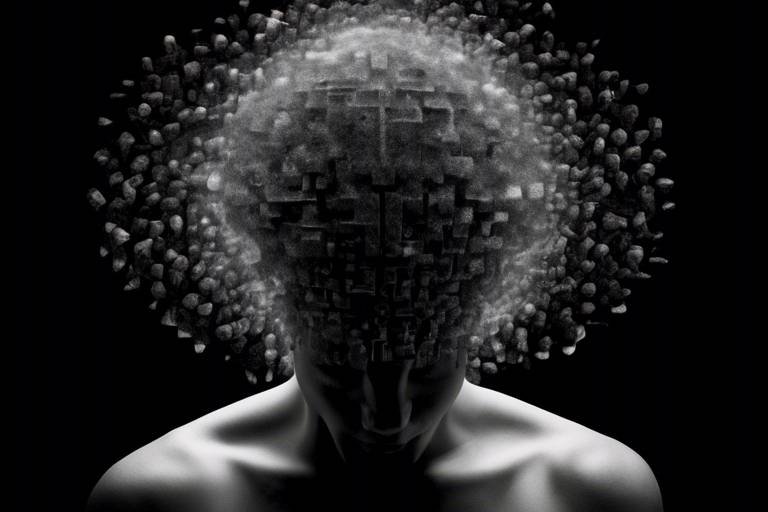Does Technology Influence Consciousness?
The intricate relationship between technology and human consciousness is a fascinating subject that has garnered increasing attention in recent years. As we navigate through the digital landscape, we often find ourselves questioning how these advancements shape our perceptions, thoughts, and interactions. From the way we communicate to how we view ourselves, technology has become an integral part of our consciousness. But does it merely enhance our awareness, or does it also alter it in profound ways?
In today’s world, technology isn't just an external tool; it has become a part of our identity. Think about it: how many times do you check your phone in a day? How often do you scroll through social media, absorbing a stream of curated images and thoughts? Each interaction with technology can subtly shift our consciousness, making us more aware of certain aspects of life while potentially dulling others. It’s like walking through a gallery of life where the paintings are constantly changing, and we must decide which ones to focus on.
As we delve deeper into this topic, we’ll explore various dimensions of how technology influences consciousness. We’ll look at social media’s impact on our self-perception and social interactions, the immersive experiences of virtual reality, and the role of artificial intelligence in shaping our understanding of what it means to be conscious. Each of these elements plays a role in redefining our reality and, ultimately, our consciousness.
To frame our discussion, let’s consider a few key questions:
- How does social media alter our perceptions of self and others?
- Can virtual reality experiences change our emotional responses?
- What ethical considerations arise when artificial intelligence influences our decisions?
As we proceed, we will unpack these questions, aiming to uncover the layers of complexity that exist in the relationship between technology and consciousness. By the end of this exploration, we hope to shed light on not just how technology influences our consciousness but also how we can navigate this evolving landscape with awareness and intention.
- How does technology affect our daily consciousness?
Technology impacts our daily consciousness by altering how we process information, interact with others, and perceive ourselves. The constant flow of information can lead to shorter attention spans and a distorted sense of reality.
- Can social media enhance our self-awareness?
While social media can provide platforms for self-expression and connection, it often leads to comparisons and curated identities that may hinder genuine self-awareness.
- What role does virtual reality play in shaping empathy?
Virtual reality can enhance empathy by allowing users to experience situations from different perspectives, fostering a deeper understanding of others' experiences.
- Are there risks associated with artificial intelligence influencing our thoughts?
Yes, there are significant risks, including ethical concerns about manipulation and the potential for AI to shape our decisions in ways we may not fully understand.

The Evolution of Consciousness
This article explores the intricate relationship between technology and human consciousness, examining how digital advancements shape our perceptions, thoughts, and interactions in the modern world.
The journey of consciousness is a fascinating tale that spans millions of years, reflecting the profound changes in human thought and awareness. From the earliest days of primitive awareness, where our ancestors were merely reacting to their environment, to the complex self-reflection we experience today, consciousness has evolved dramatically. This evolution can be understood as a gradual unfolding of cognitive abilities, where each stage opens new avenues for understanding ourselves and the world around us.
In the beginning, consciousness was primarily about survival. Early humans were driven by basic instincts: finding food, shelter, and safety. As society progressed, so did our capacity for thought. We began to develop language, allowing for deeper communication and the sharing of ideas. This was a pivotal moment in consciousness evolution; it marked the transition from mere survival to the ability to reflect, ponder, and dream. With this newfound capability came the birth of culture, art, and philosophy, which further enriched our understanding of existence.
Fast forward to the modern era, and technology has become a key player in this ongoing evolution. The advent of the internet and digital communication has transformed not just how we interact but also how we perceive our own consciousness. For instance, consider the impact of smartphones. They have effectively placed a world of information at our fingertips, altering our cognitive processes. We no longer need to memorize facts or figures; instead, we can instantly access a vast database of knowledge. This shift has led to both positive and negative outcomes:
- Enhanced Learning: The ability to access information quickly has made learning more efficient.
- Reduced Attention Span: Constant notifications and distractions can fragment our focus, leading to a decline in deep thinking.
Moreover, technology has also introduced new dimensions to our consciousness. Virtual reality (VR), for example, immerses users in alternate experiences, challenging our perceptions of reality. When we engage with VR, we are not just passive observers; we become participants in a new world, which can evoke strong emotional responses and alter our understanding of empathy and connection.
As we navigate through this digital landscape, it’s essential to reflect on the implications of these changes. Are we becoming more aware or less? Is technology enhancing our consciousness or merely reshaping it? The answers to these questions are complex and multifaceted, often leading us to consider the ethical dimensions of our technological advancements. As we continue to evolve, the interplay between technology and consciousness will undoubtedly shape the future of human experience.
In summary, the evolution of consciousness is a rich tapestry woven with the threads of survival, communication, culture, and technology. Each stage of this evolution has brought us closer to understanding the essence of what it means to be human. As we stand on the brink of further technological advancements, we must remain vigilant and thoughtful about how these tools influence our consciousness and, ultimately, our humanity.
- How has technology changed human consciousness?
Technology has altered the way we process information, communicate, and perceive reality, leading to both cognitive enhancements and challenges. - What role does social media play in consciousness evolution?
Social media influences self-perception and social interactions, shaping how we view ourselves and others in a connected world. - Can virtual reality change our consciousness?
Yes, VR can provide immersive experiences that alter our emotional responses and deepen our understanding of empathy.

The Impact of Social Media
Social media has become an integral part of our daily lives, transforming the way we communicate, share, and perceive the world around us. It's almost as if we are living in a digital echo chamber, where our thoughts and feelings are amplified by likes, shares, and comments. But have you ever stopped to think about how this constant connectivity shapes our consciousness? The impact is profound and multifaceted, influencing everything from our self-perception to our social interactions.
In many ways, social media acts like a mirror reflecting our lives back at us, but it’s a mirror that often distorts reality. We curate our online personas, selecting only the highlights to showcase while hiding the mundane or challenging aspects of our lives. This can lead to a skewed perception of what is 'normal' or 'successful.' For instance, when scrolling through a feed filled with vacation photos, perfect meals, and smiling faces, it’s easy to feel inadequate or disconnected from the perceived happiness of others. This phenomenon has been coined as “Comparative Reality,” where individuals measure their worth against the idealized representations of their peers.
As we navigate this digital landscape, we begin to construct our identities in ways that are often more complex than in the physical world. The question arises: are we truly being ourselves, or are we merely performing for an audience? The tension between authenticity and performance is palpable. On one hand, social media offers a platform for genuine self-expression, allowing users to share their thoughts, passions, and experiences. On the other hand, there is immense pressure to conform to trends and gain validation through likes and comments.
This struggle can lead to a fragmented sense of self, where individuals feel compelled to present a version of themselves that aligns with societal expectations. The pressure to perform can be overwhelming, leading to anxiety and a disconnect from one’s true identity. Are we sacrificing our authenticity for the sake of online approval? This is a question that many grapple with in the digital age.
Moreover, the curated nature of social media can create a distorted sense of reality. People often compare their lives to the highlight reels presented by others, leading to feelings of inadequacy and isolation. This comparative mindset can warp our perceptions of normalcy and success, making it difficult to appreciate our unique journeys. As we scroll through endless feeds of perfection, we may forget that everyone has struggles that remain hidden behind the screen.
Furthermore, the constant influx of information and images can lead to information overload, impacting our cognitive processes and attention spans. With notifications pinging and updates streaming in, our brains are constantly bombarded with stimuli, making it challenging to focus on any one thing. This saturation of content can lead to superficial engagement rather than deep, meaningful interactions.
In summary, social media has a significant impact on our consciousness, shaping our identities and our perceptions of reality. While it offers opportunities for connection and self-expression, it also poses challenges that can distort our understanding of ourselves and the world. As we continue to navigate this digital landscape, it’s essential to remain mindful of how social media influences our thoughts, feelings, and interactions.
- How does social media affect self-esteem? Social media can both boost and diminish self-esteem, depending on the nature of interactions and comparisons made with others.
- What is 'Comparative Reality'? Comparative Reality refers to the distorted perception of normalcy and success that arises from comparing oneself to curated online personas.
- Can social media lead to anxiety? Yes, the pressure to maintain an online presence and gain validation can contribute to feelings of anxiety and inadequacy.
- How can individuals maintain authenticity on social media? By being mindful of what they share and focusing on genuine connections rather than seeking approval through likes and shares.
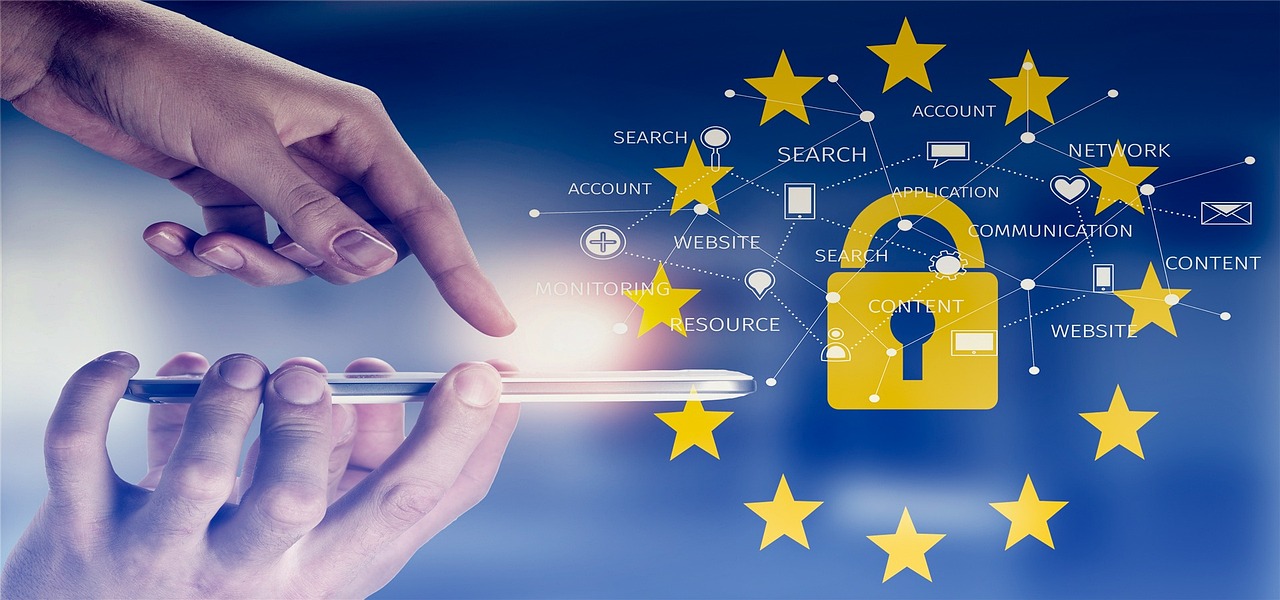
Digital Identity Formation
The digital age has revolutionized how we perceive ourselves and how we present our identities to the world. With just a few clicks, we can curate our online personas, showcasing only the most polished aspects of our lives. This phenomenon raises intriguing questions: Are we truly being ourselves online, or are we merely performing for an audience? The act of creating a digital identity is akin to putting on a mask; it can be both empowering and disorienting.
As we navigate through various social media platforms, we often find ourselves engaged in a constant cycle of self-presentation. This process involves selecting what to share, how to share it, and, ultimately, how we want to be perceived. The implications of this curated existence can be profound. For instance, studies have shown that individuals who heavily curate their online identities may experience a disconnect between their real-life selves and their digital personas. This disconnect can lead to feelings of inadequacy, anxiety, and even depression as they compare their behind-the-scenes reality to the highlight reels of others.
Moreover, the formation of our digital identities is influenced by several factors, including:
- Social Validation: The likes, shares, and comments we receive can reinforce our self-worth, creating a feedback loop that drives us to seek more validation online.
- Peer Influence: Our friends and social circles often dictate trends and norms, compelling us to conform to certain images or lifestyles.
- Algorithmic Curation: Platforms use algorithms that promote specific content, shaping what we see and, consequently, how we choose to represent ourselves.
In this digital landscape, authenticity often battles with the urge to perform. Many users grapple with the question of how much of their true selves they should reveal. The tension between being genuine and the pressure to maintain an appealing online image can create an identity crisis of sorts. This phenomenon is particularly pronounced among younger generations, who have grown up in a world where their worth is often measured by their online presence.
Additionally, the concept of comparative reality plays a significant role in digital identity formation. As we scroll through feeds filled with perfectly crafted images and seemingly flawless lives, our perception of what is normal or successful can become skewed. This distortion can lead to unrealistic expectations, not just for ourselves but for others as well. The challenge lies in finding a balance—embracing our authentic selves while navigating the curated nature of online interactions.
Ultimately, the formation of our digital identities is a complex dance between self-expression and societal expectations. As technology continues to evolve, so too will the ways in which we construct and understand our identities in the digital realm. It's essential to remain mindful of how these identities shape our consciousness and influence our interactions with the world around us.
- What is digital identity formation? Digital identity formation refers to the process of creating and curating one's online persona through social media and other digital platforms.
- How does social media influence our identities? Social media influences our identities by providing a platform for self-expression, validation, and comparison with others, which can shape our self-perception.
- Can digital identities lead to mental health issues? Yes, the pressure to maintain a curated digital identity can lead to feelings of inadequacy, anxiety, and depression, especially when comparing oneself to others.
- How can we maintain authenticity online? To maintain authenticity online, it’s important to share genuine experiences, limit comparisons with others, and focus on self-acceptance rather than seeking external validation.

Authenticity vs. Performance
In the digital age, the line between authenticity and performance has become increasingly blurred. Social media platforms encourage users to present their best selves, often leading to a curated version of reality that may not reflect true experiences or emotions. Have you ever scrolled through your feed and thought, "Is everyone really living this perfect life?" This question highlights the tension that exists between being genuine and the pressure to perform.
Many individuals feel compelled to showcase their lives in a way that garners likes and shares, which can lead to a cycle of validation-seeking behavior. This performance aspect can create a façade that might be appealing at first but often leaves a lingering sense of emptiness. The psychological implications are profound; when we prioritize performance over authenticity, we risk losing touch with our true selves and the connections that come from being real.
Consider the following aspects of this dynamic:
- Curated Lives: People often share only the highlights of their lives, leading to unrealistic comparisons and expectations.
- Fear of Judgment: The anxiety of being judged can push individuals to alter their behaviors and expressions to fit societal norms or trends.
- Connection vs. Isolation: While social media can foster connections, it can simultaneously create feelings of isolation when individuals realize that their online persona does not match their offline reality.
This performance-driven culture can lead to a paradox where people feel more disconnected despite being constantly connected. The pressure to maintain an online persona can be exhausting, and it raises important questions about the nature of our interactions. Are we truly connecting with others, or are we merely performing for an audience?
Ultimately, the struggle between authenticity and performance is a reflection of our deeper desires for acceptance and understanding. As we navigate this digital landscape, it’s essential to seek a balance—embracing our authentic selves while recognizing the allure of performance. Finding this equilibrium can lead to more meaningful relationships and a healthier sense of self in an age dominated by curated identities.
- What is the difference between authenticity and performance on social media?
Authenticity refers to being true to oneself and sharing genuine experiences, while performance involves curating content to meet external expectations or gain validation. - How can I maintain authenticity while using social media?
Focus on sharing real moments, engage with your audience genuinely, and resist the urge to conform to trends that don’t resonate with you. - What are the psychological effects of prioritizing performance over authenticity?
Focusing on performance can lead to anxiety, feelings of inadequacy, and a disconnection from one’s true self, potentially resulting in loneliness.
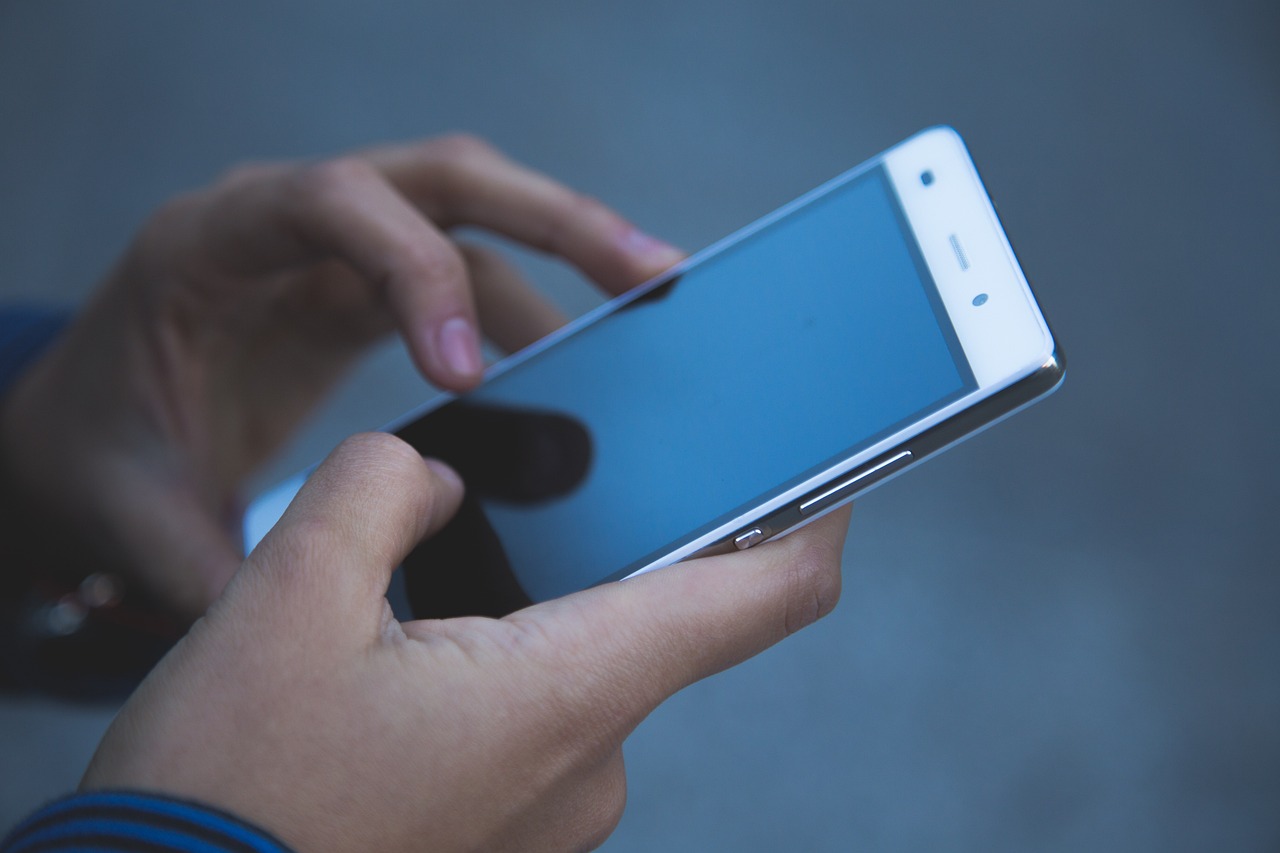
Comparative Reality
In today's digital landscape, the concept of has emerged as a powerful force shaping our consciousness. This phenomenon refers to how social media and digital interactions create a warped perception of reality, influencing how we see ourselves and others. Think about it: when you scroll through your feed, you’re bombarded with images of perfectly curated lives, stunning vacations, and seemingly flawless relationships. It’s like looking through a funhouse mirror that distorts your view of what life should be. But the question arises—how does this affect our mental state and our understanding of what is 'normal'?
As we dive deeper into the implications of comparative reality, it becomes evident that these digital portrayals can lead to a skewed sense of success and happiness. Many individuals find themselves engaging in a constant cycle of comparison, measuring their lives against the highlight reels of others. This can result in feelings of inadequacy, anxiety, and even depression. A recent study found that 60% of social media users reported feeling worse about their own lives after viewing others' posts. This statistic underscores the emotional toll that comparative reality can impose.
Moreover, the impact of comparative reality extends beyond personal feelings; it shapes societal norms and expectations. The curated lives we see online can create a distorted benchmark for what constitutes success. For instance, the pressure to achieve the perfect body, career, or lifestyle can push individuals to chase unrealistic goals, often leading to burnout and dissatisfaction. In essence, social media can act as a double-edged sword—while it connects us, it also isolates us in our struggles and insecurities.
To illustrate the complexities of comparative reality, consider the following table that outlines the differences between perceived reality and actual reality:
| Aspect | Perceived Reality | Actual Reality |
|---|---|---|
| Success | Wealth and fame | Personal fulfillment and happiness |
| Relationships | Perfect partnerships | Real struggles and growth |
| Appearance | Flawless looks | Natural variations and imperfections |
As we navigate this complex web of comparative reality, it’s crucial to remind ourselves that what we see online is often a curated version of someone’s life, not the full picture. Embracing authenticity and recognizing that everyone has their struggles can help mitigate the adverse effects of this phenomenon. One way to combat the negative impact of comparative reality is to cultivate a mindset of gratitude and self-acceptance. By focusing on our unique journeys and celebrating small victories, we can break free from the chains of comparison.
In conclusion, comparative reality is a significant aspect of our digital existence that profoundly influences our consciousness. As we continue to engage with social media and technology, it’s essential to approach these platforms with a critical eye, understanding the potential psychological implications. By fostering a culture of authenticity and self-acceptance, we can reshape our perceptions and create a healthier relationship with our digital identities.
- What is comparative reality? Comparative reality refers to the way social media creates a distorted sense of reality, making individuals compare their lives to the curated images they see online.
- How does social media affect mental health? Social media can lead to feelings of inadequacy and anxiety as users often compare themselves to others' highlight reels.
- What can I do to combat negative feelings from social media? Focusing on gratitude, self-acceptance, and limiting exposure to curated content can help mitigate negative feelings.

Information Overload
In today's fast-paced digital landscape, we are inundated with a **tsunami of information**. From social media notifications to endless news feeds, the sheer volume of content we encounter daily can be overwhelming. This phenomenon, known as , is not just a modern inconvenience; it profoundly affects our consciousness and cognitive processes. Have you ever found yourself scrolling through your phone, only to realize hours have passed? This is a classic example of how our attention spans are being stretched thin, often leading to feelings of anxiety and disconnection.
As we consume more information than ever before, our brains struggle to process it effectively. The constant barrage of data can lead to **cognitive fatigue**, making it challenging to focus on what truly matters. When our attention is divided among countless distractions, we may find it difficult to engage in deep, meaningful thought. Instead, we often skim through headlines and sound bites, which can result in a superficial understanding of complex issues. This shift in how we process information is not just a personal issue; it has societal implications as well.
Consider the impact of information overload on our ability to engage in civil discourse. When individuals are bombarded with conflicting viewpoints and sensationalized headlines, it becomes increasingly difficult to form coherent opinions. The nuances of various issues can get lost in the noise, leading to polarized perspectives and a lack of empathy. In this environment, how can we foster constructive conversations? It’s crucial to develop skills that help us navigate this vast sea of information.
To combat information overload, we can adopt several strategies:
- Prioritize Quality Over Quantity: Focus on consuming content from reputable sources that provide in-depth analysis rather than just headlines.
- Set Boundaries: Limit the time spent on social media and news consumption to regain control over our attention.
- Practice Mindfulness: Engage in activities that promote mindfulness, such as meditation or journaling, to help center our thoughts.
By implementing these strategies, we can enhance our ability to process information and make more informed decisions. The key lies in recognizing that while technology offers us access to a wealth of knowledge, it also requires us to be more discerning about what we choose to engage with. As we navigate this complex landscape, we must remember that our consciousness is shaped not only by the information we consume but also by how we choose to interact with it.
In conclusion, information overload is a double-edged sword. It provides us with unprecedented access to knowledge, yet it also poses significant challenges to our cognitive well-being. As we move forward, it's essential to cultivate a balanced approach to information consumption, ensuring that we remain informed without becoming overwhelmed. By doing so, we can reclaim our attention and enhance our understanding of the world around us.
- What is information overload? Information overload refers to the state of being overwhelmed by the amount of information one is exposed to, making it difficult to process and make decisions.
- How does information overload affect mental health? It can lead to increased anxiety, stress, and cognitive fatigue, impacting overall mental well-being.
- What strategies can help mitigate information overload? Prioritizing quality content, setting boundaries on consumption time, and practicing mindfulness are effective strategies.
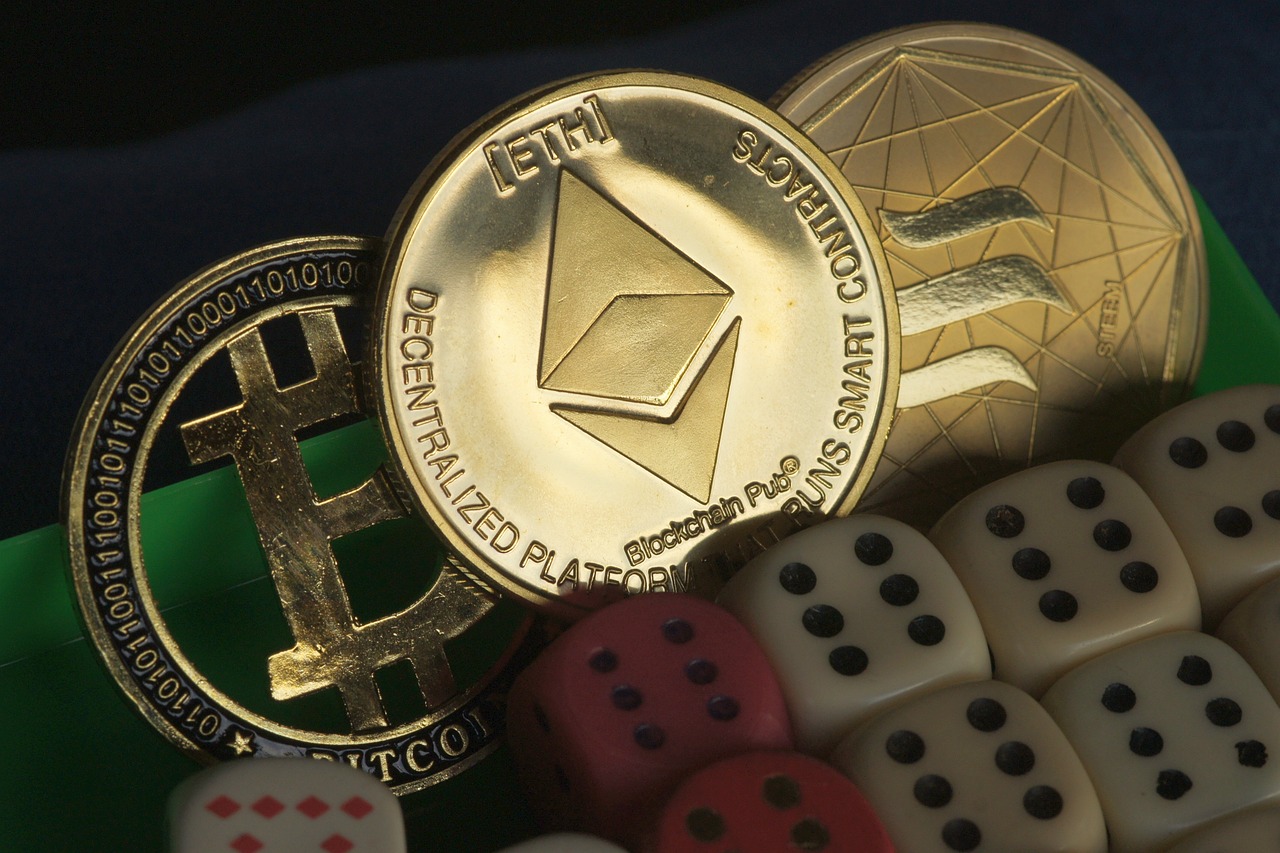
Virtual Reality and Consciousness
Virtual reality (VR) is not just a technological marvel; it’s a gateway to new realms of consciousness. Imagine stepping into a world where the boundaries of reality blur, where you can experience life from perspectives you never thought possible. This immersive technology has the potential to reshape our understanding of consciousness, pushing the limits of what we perceive as real. With VR, we can explore environments that stimulate our senses, evoke emotions, and even challenge our beliefs about ourselves and the world around us. But how does this all work? Let’s dive deeper into the impact of virtual reality on our consciousness.
One of the most fascinating aspects of VR is its ability to create immersive experiences. When users don a headset, they are transported into a digital landscape that feels incredibly real. This immersion can lead to profound emotional responses, as individuals engage with virtual environments that may mimic real-life scenarios or present entirely fantastical worlds. The brain, in turn, responds to these experiences as if they were genuine, altering our emotional state and even our perceptions of reality. For instance, studies have shown that VR can enhance feelings of empathy by allowing users to experience situations from another person’s viewpoint. This capability highlights a unique potential for VR to foster deeper connections among individuals, bridging gaps that traditional communication methods often cannot.
However, it’s essential to consider the flip side of this technological coin. While VR can enhance empathy and understanding, it can also lead to escapism and a distorted sense of reality. People may become overly reliant on virtual experiences to the point where they neglect their real-life responsibilities and relationships. This raises a critical question: at what point does escapism become detrimental? The allure of a perfect virtual world can be intoxicating, but it may also lead to disillusionment when individuals return to the complexities of real life. Finding a balance between enjoying VR and maintaining a healthy perspective on reality is crucial for preserving our consciousness.
To illustrate the dual nature of virtual reality, consider the following table that outlines both the positive and negative impacts of VR on consciousness:
| Positive Impacts | Negative Impacts |
|---|---|
| Enhances empathy through immersive experiences | Can lead to escapism and neglect of real-life responsibilities |
| Offers new perspectives and emotional responses | May distort users' perceptions of normalcy and reality |
| Facilitates connections among diverse individuals | Potential for addiction to virtual environments |
As we continue to explore the intersection of technology and consciousness, it’s clear that virtual reality holds immense potential. It allows us to transcend physical limitations and experience life in ways we never imagined. Yet, with great power comes great responsibility. As users, we must navigate this new landscape carefully, ensuring that our adventures in virtual reality enhance rather than detract from our understanding of ourselves and the world around us. The challenge lies in leveraging the benefits of VR while remaining grounded in reality, fostering a consciousness that is both enriched and balanced.
- What is virtual reality? Virtual reality is a simulated experience that can mimic or differ from the real world, often using headsets and sensory equipment to immerse users in a digital environment.
- How does VR affect our consciousness? VR can alter our emotional states, enhance empathy, and provide new perspectives, but it can also lead to escapism and a distorted sense of reality.
- Can VR help with mental health? Yes, VR has been used in therapeutic settings to treat conditions like PTSD and anxiety by allowing patients to confront fears in a controlled environment.
- Is there a risk of addiction to VR? Like any immersive technology, there is a risk of addiction, particularly if individuals prefer virtual experiences over real-life interactions and responsibilities.

Empathy and Connection
In a world where face-to-face interactions are increasingly replaced by screens, the role of virtual reality (VR) in fostering empathy and connection has become a fascinating topic of discussion. Imagine slipping on a VR headset and being transported into someone else's shoes—literally. This immersive experience allows individuals to see and feel the world from another person's perspective, breaking down barriers and creating a profound sense of understanding. But how does this work?
When we engage with VR, our brains are tricked into believing we are part of a different reality. This sensation can evoke strong emotional responses, as we witness scenarios that may be completely foreign to us. For instance, a VR simulation that places you in the midst of a refugee crisis can stir feelings of compassion and urgency that might not surface when reading about the same issue in a news article. In this way, VR serves as a powerful tool for empathy, enabling users to connect with others' experiences on a deeper level.
Moreover, VR experiences often encourage collaboration and communication among users. When participants engage in shared virtual environments, they must work together to solve problems or navigate challenges. This teamwork fosters a sense of community and belonging, which is essential for emotional connections. As users interact, they may discover shared values and experiences, enhancing their understanding of one another. The result? A more empathetic society that values diverse perspectives.
However, it's essential to consider the implications of such technologies. While VR can enhance empathy, it also raises questions about the authenticity of these connections. Are we truly understanding others, or are we merely experiencing a simulation? Furthermore, the risk of becoming desensitized to real-world issues exists. If we rely too heavily on virtual experiences to cultivate empathy, we might neglect the importance of genuine human interactions.
To illustrate the potential of VR in enhancing empathy, let’s look at a few key areas where this technology is making waves:
- Education: Students can experience historical events or cultural practices firsthand, leading to a richer understanding of different perspectives.
- Therapy: VR is being used in therapeutic settings to help individuals confront phobias or traumatic experiences in a controlled environment.
- Social Awareness: Nonprofits are utilizing VR to create awareness campaigns that allow users to experience social issues directly, driving home the urgency of action.
While the benefits of VR in promoting empathy are clear, it’s crucial to strike a balance. As we embrace these technological advancements, we must remain vigilant about the potential pitfalls. The ultimate goal should be to enhance our ability to connect with one another in meaningful ways, both virtually and in reality. In doing so, we can harness the power of technology to create a more empathetic and connected world.
Q1: Can virtual reality really enhance empathy?
A1: Yes! VR can immerse users in experiences that allow them to see the world from different perspectives, fostering a deeper understanding of others' feelings and situations.
Q2: Are there risks associated with using VR for empathy?
A2: While VR can promote empathy, there's a risk of desensitization or relying too much on virtual experiences rather than engaging in real-life interactions.
Q3: How is VR being used in therapy?
A3: Therapists use VR to help clients confront fears or traumatic memories in a safe environment, facilitating healing and emotional growth.
Q4: What are some practical applications of VR in education?
A4: VR can transport students to historical events or different cultures, enhancing their learning experience and promoting empathy through immersive education.

Escapism and Reality Distortion
In our fast-paced world, where stress and responsibilities can feel overwhelming, many individuals turn to technology as a means of escapism. Virtual reality (VR) offers a tantalizing escape from the mundane, allowing users to immerse themselves in fantastical worlds that can be as exhilarating as they are immersive. But this form of escapism comes with its own set of challenges. While it can provide temporary relief from the pressures of reality, it can also lead to a significant distortion of reality itself.
Imagine putting on a VR headset and being transported to a serene beach, the sound of waves lapping at your feet and the sun warming your skin. For a moment, all your worries fade away. However, what happens when you take off that headset? The stark contrast between your virtual paradise and your everyday life can create a jarring experience, leading to feelings of disconnection and dissatisfaction with the real world. This phenomenon raises an important question: Are we risking our ability to engage with reality by immersing ourselves so deeply in these digital realms?
The allure of virtual environments can also warp our perceptions of what is normal. For instance, when users consistently engage with idealized avatars and curated experiences, they may begin to internalize these representations as benchmarks for their own lives. This can lead to a cycle of comparison and dissatisfaction, where the lines between reality and virtuality blur. In turn, this may cause individuals to question their own experiences and feelings, leading to a distorted sense of self-worth and purpose.
Moreover, the psychological implications of relying on VR for escapism can be profound. While it can foster creativity and provide a safe space to explore emotions, it can also lead to a form of avoidance. Instead of confronting real-life challenges, individuals might choose to retreat into their VR worlds, which can exacerbate feelings of isolation and anxiety. The more time spent in these digital realms, the more difficult it can become to navigate the complexities of everyday life.
To better understand the impact of escapism through technology, consider the following table that outlines the potential benefits and drawbacks of virtual reality experiences:
| Benefits | Drawbacks |
|---|---|
| Immersive experiences that can enhance creativity | Potential disconnection from reality |
| Safe spaces for emotional exploration | Risk of avoidance of real-life issues |
| Opportunities for social interaction in virtual environments | Distorted perceptions of normalcy and success |
In conclusion, while technology, particularly virtual reality, offers a unique form of escapism, it is essential to remain aware of its potential to distort our perception of reality. Balancing our digital experiences with genuine interactions and self-reflection is crucial for maintaining a healthy consciousness. After all, while it’s tempting to escape into a world of fantasy, we must also embrace the beauty and complexity of our real lives.
- What is escapism in the context of technology? Escapism refers to the tendency to seek distraction and relief from unpleasant realities, often through immersive technologies like virtual reality.
- Can virtual reality be beneficial? Yes, VR can enhance creativity, provide safe spaces for emotional exploration, and foster social interactions, but it also carries risks of disconnection and avoidance.
- How does technology distort our perception of reality? Technology can create idealized representations of life that lead to comparisons, dissatisfaction, and a warped sense of normalcy.

Artificial Intelligence and Consciousness
The relationship between artificial intelligence (AI) and human consciousness is one of the most fascinating and debated topics in contemporary discourse. As technology advances, we find ourselves increasingly interacting with intelligent systems that can learn, adapt, and even mimic human behavior. But what does this mean for our understanding of consciousness? Are we on the brink of a revolution in how we perceive our own minds, or are we simply creating sophisticated tools that reflect our own cognitive processes?
At its core, consciousness is often defined as the state of being aware of and able to think about one’s own existence, thoughts, and surroundings. With the rise of AI, we are forced to confront profound questions about the nature of consciousness itself. For instance, can a machine ever truly be said to possess consciousness, or is it merely simulating human-like responses? This distinction is crucial, as it touches on the very essence of what it means to be human.
As we explore the implications of AI on consciousness, we must also consider the ethical ramifications. The integration of AI into our daily lives raises questions about autonomy and decision-making. If AI systems can influence our choices—whether it’s through personalized recommendations on a streaming service or targeted ads on social media—what does that mean for our free will? Are we merely following a path laid out by algorithms designed to predict our preferences?
Moreover, the interaction between humans and AI can lead to a shift in our perception of what it means to be conscious. For example, when we engage with virtual assistants like Siri or Alexa, we may find ourselves anthropomorphizing these systems, attributing them with feelings or intentions. This tendency can blur the lines between human consciousness and artificial constructs, leading us to question the very nature of our own awareness.
As we delve deeper into the future of AI and consciousness, several key implications arise:
- Redefining Human Interaction: As AI becomes more integrated into our lives, the way we interact with each other may change. Will we begin to rely on AI for social interactions, potentially leading to a decline in human-to-human connections?
- Ethical Considerations: The potential for AI to influence our decisions raises ethical concerns. How do we ensure that AI systems are designed to respect human autonomy?
- Understanding Consciousness: As we develop more sophisticated AI, we may gain insights into our own consciousness. The study of AI could provide new ways to explore the human mind.
Looking ahead, the relationship between AI and consciousness is poised to evolve significantly. As technology continues to advance, we may find ourselves facing challenges that require us to rethink our definitions of consciousness and intelligence. Will we embrace AI as a partner in our journey of self-discovery, or will we fear its potential to overshadow our own humanity?
In conclusion, the intersection of artificial intelligence and consciousness is a complex and evolving landscape. As we navigate this terrain, it is essential to engage in thoughtful discussions about the implications of our technological advancements. Only by doing so can we ensure that we harness the power of AI to enhance, rather than diminish, our understanding of what it means to be conscious.
- Can AI possess consciousness? Currently, AI does not have consciousness in the same way humans do. It can simulate responses but lacks self-awareness and subjective experiences.
- How does AI influence our decision-making? AI systems analyze data and predict user preferences, which can subtly guide our choices in various aspects of life, from shopping to entertainment.
- What are the ethical concerns surrounding AI? Major concerns include privacy, autonomy, and the potential for bias in AI algorithms, which could lead to unfair treatment of individuals.

AI and Human Interaction
As we dive into the realm of artificial intelligence (AI), it's impossible to ignore how these systems are reshaping our interactions and perceptions of what it means to be human. Imagine a world where you can have a conversation with a machine that understands your emotions, preferences, and even your quirks. Sounds like science fiction, right? But this is our reality today. AI is not just a tool; it's becoming a companion, a collaborator, and in many ways, a reflection of ourselves.
One of the most significant aspects of AI-human interaction is the way it challenges our traditional notions of consciousness. When we interact with AI, we are often faced with questions like: What does it mean to be sentient? and Can a machine truly understand human emotions? These questions are not just philosophical musings; they have real-world implications. As AI systems become more sophisticated, they can mimic human-like responses, leading us to form emotional connections with them. This blurring of lines raises ethical concerns and forces us to reconsider our definitions of empathy, intelligence, and even consciousness itself.
Furthermore, AI's influence extends beyond individual interactions. In various sectors, from healthcare to customer service, AI is redefining how we communicate and connect. For instance, consider the use of chatbots in customer support. These AI-driven systems can handle inquiries at lightning speed, providing answers and solutions without the fatigue or bias that can sometimes affect human agents. But here’s the catch: while they enhance efficiency, they can also create a sense of detachment. The warmth of a human touch is often replaced by the cold efficiency of a machine. This shift can lead to a disconnect in our social interactions, making us question the value of human connection.
Moreover, the way we engage with AI can significantly impact our self-perception and social behavior. When individuals interact with AI systems that are designed to learn and adapt, they may start to see themselves through the lens of these interactions. For instance, if an AI consistently praises a user's choices, it can boost their confidence. However, it can also lead to an unhealthy reliance on external validation, shifting our self-worth away from intrinsic qualities to external feedback mechanisms.
To further illustrate this evolving dynamic, let’s take a look at some key areas where AI is influencing human interaction:
| Area of Influence | Description |
|---|---|
| Emotional Support | AI companions like chatbots provide emotional support, helping users navigate their feelings. |
| Social Skills | Interactions with AI can enhance or hinder social skills, depending on how they’re used. |
| Decision Making | AI assists in decision-making processes, but it raises questions about autonomy and agency. |
As we look to the future, it's crucial to consider the implications of AI on our consciousness and social fabric. Will we embrace these technologies as partners in our journey, or will we become overly reliant on them, losing touch with our humanity? The answers to these questions will shape not only our personal experiences but also the broader societal landscape.
In conclusion, the interaction between AI and humans is a double-edged sword. While it offers incredible opportunities for enhancing our lives, it also poses significant challenges that we must navigate with care. As we continue to develop and integrate AI into our daily lives, we must strive to maintain a balance that honors our human essence while embracing the advancements of technology.
- How does AI affect our emotional well-being? AI can provide support but may also create dependency on external validation.
- Can AI truly understand human emotions? While AI can mimic emotional responses, true understanding remains a complex challenge.
- What are the ethical concerns surrounding AI-human interaction? Issues include privacy, autonomy, and the potential for emotional manipulation.

Future Implications
As we stand on the brink of a technological revolution, the question of how technology will influence our consciousness in the future becomes increasingly pertinent. Just imagine a world where our thoughts could be directly interfaced with machines, where the boundaries between human cognition and artificial intelligence blur. This isn't just science fiction; it’s a possibility that could reshape our very existence.
In the coming years, advancements in neurotechnology may enable us to enhance our cognitive abilities, potentially leading to a society where intelligence is augmented by technology. This brings forth a myriad of ethical considerations. For instance, who gets access to these enhancements? Will there be a divide between those who can afford cognitive upgrades and those who cannot? The implications of such disparities could lead to a new class of consciousness, further stratifying society.
Moreover, as AI systems become more integrated into our daily lives, our interactions with these technologies will likely redefine what it means to be human. Imagine a future where AI companions not only assist us but also learn from our emotional responses, adapting to our needs and preferences. This could lead to deeper connections with machines, but it also raises the question: will we begin to prioritize our relationships with AI over those with fellow humans? The potential for emotional dependency on AI systems is a double-edged sword.
We must also consider the impact of virtual reality (VR) and augmented reality (AR) on our perception of reality. As these technologies evolve, they will provide increasingly immersive experiences that could alter our consciousness in profound ways. For instance, VR could allow us to experience life through the eyes of another person, fostering empathy and understanding. However, this could also lead to a form of escapism, where individuals prefer virtual experiences over real-world interactions, distorting their perception of reality.
Furthermore, the rapid pace of information consumption in our digital age is likely to continue. As we navigate an ocean of data, our attention spans may dwindle, leading to a fragmented consciousness. This phenomenon could result in a generation that struggles to focus, think critically, and engage deeply with the world around them. To counteract this, we may need to develop new cognitive skills that prioritize mindfulness and intentionality in our interactions with technology.
In summary, the future implications of technology on consciousness are as exciting as they are daunting. As we embrace these advancements, it is crucial to engage in ongoing discussions about their ethical ramifications and societal impacts. By doing so, we can strive for a future where technology enhances our consciousness rather than diminishes it, creating a harmonious relationship between humanity and its creations.
- Will technology change the way we think?
Yes, as technology evolves, it can alter our cognitive processes, influencing how we perceive and interact with the world. - What are the ethical concerns regarding AI and consciousness?
Concerns include access to technology, emotional dependency on AI, and the potential for a divided society based on cognitive enhancements. - How might virtual reality affect our social interactions?
While VR can foster empathy, it may also lead to escapism, causing individuals to prioritize virtual experiences over real-life relationships. - What skills will be important in a tech-driven future?
Mindfulness, critical thinking, and intentional engagement with technology will be crucial for navigating the complexities of the digital age.
Frequently Asked Questions
- How does technology shape our consciousness?
Technology influences our consciousness by altering the way we perceive the world and interact with others. Digital advancements, especially through social media, can change our self-perception and the way we process information. For instance, the constant exposure to curated online identities can lead us to compare ourselves to others, affecting our self-esteem and overall mental health.
- What is the impact of social media on our self-identity?
Social media plays a significant role in shaping our self-identity. It allows individuals to present curated versions of themselves, which can sometimes lead to a disconnect between their online persona and real-life identity. This performance can create a pressure to conform to certain standards, leading to feelings of inadequacy or anxiety when those standards are not met.
- Can virtual reality change the way we experience empathy?
Yes, virtual reality has the potential to enhance empathy by immersing users in experiences that allow them to see the world from another person's perspective. This immersive experience can foster a deeper understanding of others' emotions and situations, ultimately transforming our connections with them.
- What are the risks of using virtual reality for escapism?
While virtual reality can provide an escape from reality, over-reliance on it can lead to a distorted perception of the real world. This escapism may prevent individuals from addressing real-life challenges, potentially leading to issues such as social withdrawal or an inability to cope with everyday situations.
- How does artificial intelligence influence our decision-making?
Artificial intelligence can significantly shape our decision-making processes by providing personalized recommendations and influencing our choices based on data analysis. However, this raises ethical concerns about autonomy and the potential for manipulation, as individuals may unknowingly rely on AI systems to make decisions for them.
- What are the future implications of technology on consciousness?
As technology continues to evolve, its impact on consciousness will likely deepen. We may see advancements that redefine what it means to be human, as AI and virtual experiences become more integrated into our daily lives. This could lead to new ways of understanding consciousness and our place in the world.


